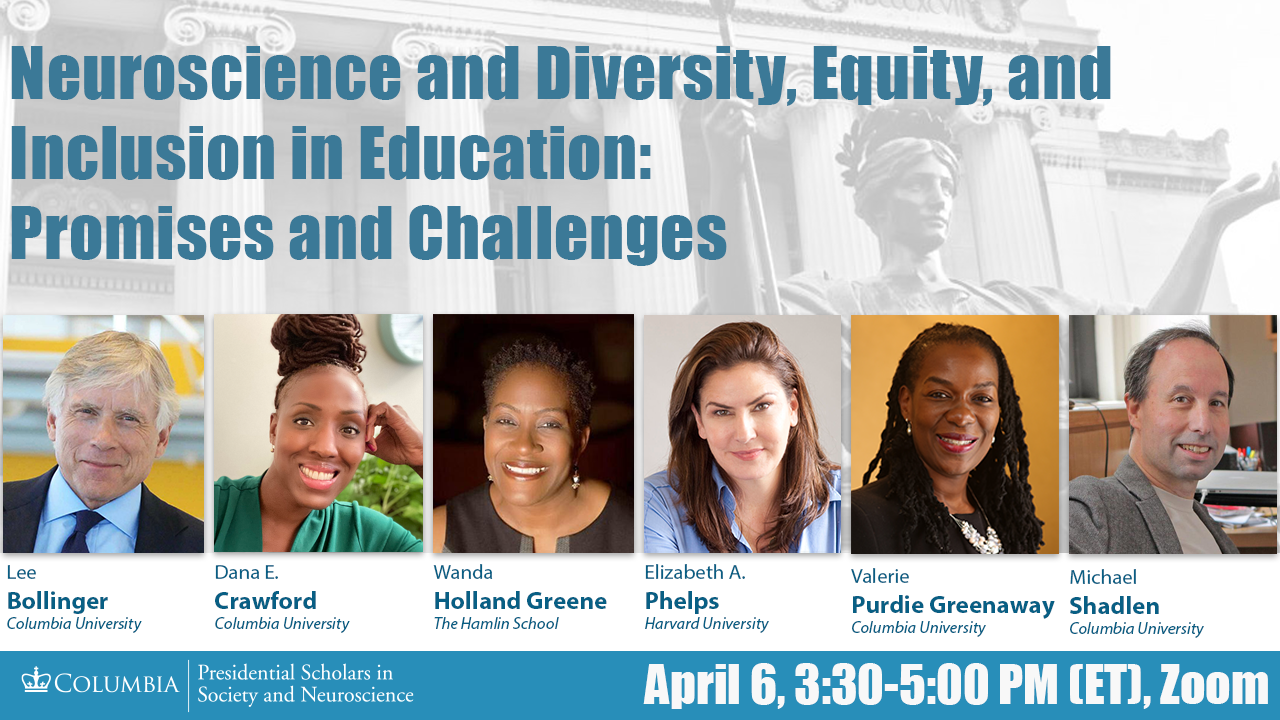Q&A: Neuroscience and Diversity, Equity, and Inclusion in Education

In the 2003 landmark Supreme Court case, Grutter v. Bollinger, the Court upheld affirmative action in the University of Michigan Law School admissions process as constitutional because the program furthered a compelling interest in obtaining “an educational benefit that flows from student body diversity.” In the decades since, there has been an explosion of research from many fields to better understand our emotions and biases, and to demonstrate the benefits of diversity. These have yielded mixed results that are often difficult to translate into real-world solutions, while diversity in higher education has remained relatively stagnant. Further, the realities of 2020 —from the racial divide in lives lost to COVID-19, in police violence, and the resurgence of nation-wide protests for racial justice—demonstrate that the U.S. still has a long way to go in achieving meaningful change.
If improving diversity, equity, and inclusion (DEI) is one of our most urgent societal concerns, and neuroscience provides some of the most advanced tools to understand the brain and behavior, can we use neuroscience to shape the future of diversity research? Is neuroscience the right tool? The April 6 event, Neuroscience and Diversity, Equity, and Inclusion in Education: Promises and Challenges will facilitate a discussion on what research and practice from psychology, education, law, and neuroscience can tell us about achieving the benefits and promises of diversity.
Before the event, we spoke with organizer and moderator Valerie Purdie-Greenaway, Associate Professor of Psychology at Columbia University, about her research and thoughts on the topics to be covered.
It has been an incredible honor to assist in organizing this event. The global civic unrest of the past year and calls for change have penetrated every aspect of education including higher education and Columbia University. It is important that the Presidential Scholars in Society and Neuroscience program continues to push itself to foster diverse, equitable, inclusive, and anti-racist environments. President Bollinger has made clear that Columbia is committed to this challenge. I thought it would be interesting to ask the question of how neuroscience can contribute to fostering [these types of environments] in the context of education.
I think of my lab as trying to develop complex and nuanced understandings of diversity, equity, and inclusion to zero in on the experience of historically marginalized groups. Inequality between social groups is one of society’s most pressing problems. Indeed, all individuals, at one time or another, face marginalization based on one or more of their group identities (e.g., age, race, religion, gender, sexual orientation, social class). One major contributor to this inequality, my research suggests, is social-psychological in nature: the threats to identity that people face in settings where their group has been historically marginalized. These identity threats contribute to intellectual underperformance, mental and physical illness, and inequities in social and career opportunities. The goal of my lab’s research is to understand the nature of this threat and ways that institutions can mitigate it. I also have a long-standing interest in conflicts that arise between majority and minority group members in society (“us” vs. “them” dynamics) of which identity threat is related. In general terms, I seek both to understand the processes underlying significant social problems and to develop theory-driven, rigorously tested intervention strategies.
DEI is not important to education. Diversity, equity, inclusion, and anti-racism ARE education. I can explain, as can many others, the relationship between bringing people together from diverse backgrounds and gains in creativity, performance, etc. But, the bottom line is that it is the responsibility of educational institutions to educate the next generation of students. We do this by ensuring that our faculty, curriculum, and ideas reflect who they are.
I hope that we can learn more about the strengths, limitations, and challenges of leveraging neuroscience to advance diversity, equity, and inclusion initiatives. We have an incredible panel and I am looking forward to this event!
Join us on April 6 at 3:30 PM on Zoom for Neuroscience and Diversity, Equity, and Inclusion in Education: Promises and Challenges to hear more about how the fields of law, psychology, neuroscience, and education can come together to discuss the future of diversity research.
Panelists include Lee Bollinger, President of Columbia University and Faculty Member at Columbia Law School; Dana E. Crawford, Clinical Psychologist and Zuckerman Institute, Scholar-in-Residence at Columbia University; Wanda Holland Greene, Head of School at the Hamlin School and Vice Chair of the Trustees of Columbia University; Elizabeth A. Phelps, Pershing Square Professor of Human Neuroscience at Harvard University; and Michael Shadlen, Professor of Neuroscience at Columbia University.
This event is free and open to the public, but RSVP is required via Eventbrite.
This event is hosted by the Presidential Scholars in Society and Neuroscience.
